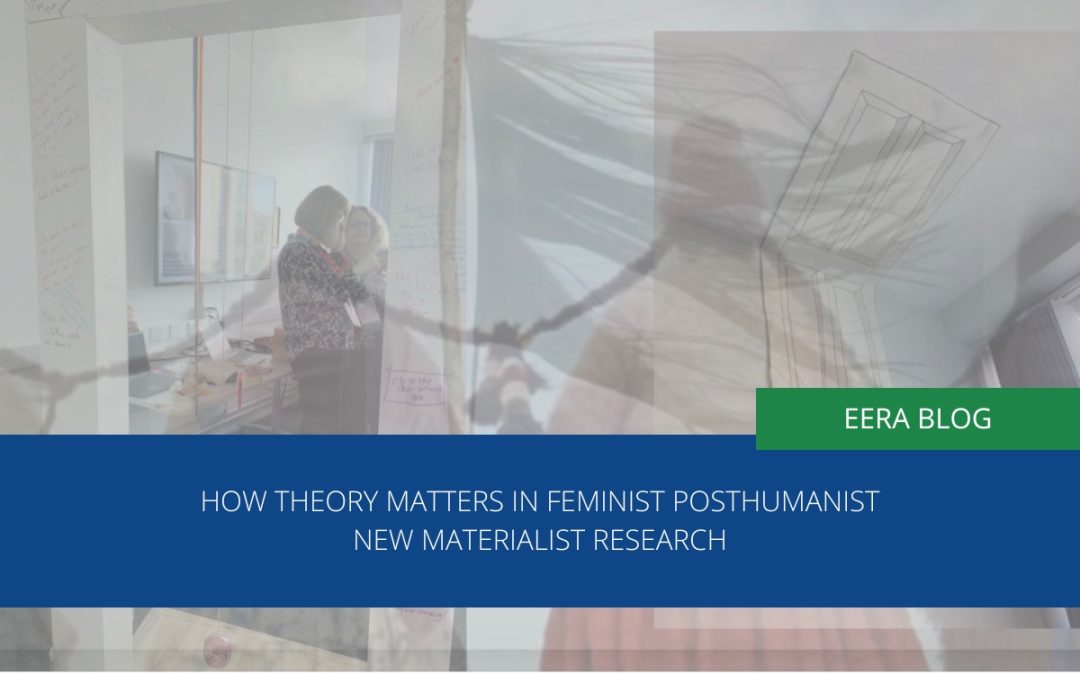We are four researchers at various career stages who share an interest in how feminist posthumanist new materialisms (FPNM) matters in our research, pedagogy and lives. This blog explores what FPNM theory offers educational researchers and gives examples how we have employed this in our research.
Feminist posthumanist new materialist theory
Educational researchers and doctoral students are expected to have and/or use a conceptual or theoretical framework. From a FPNM perspective, this presumption presents some concerns: one, concepts and theories are not pre-existing things, ‘out there’, waiting for us to ‘apply’ them to a pre-existing question or problem; and two, it tends to hide how frameworks shape, define and mould research and researchers in particular ways. However, some researchers have worked with theory as a means to disrupt and defamiliarize dominant practices and categories (Ball, 1995; Lather & Smithies, 1997; Cannella, 1997; Butler, 1990/2006). In FPNM research, theory is an emergent material, practical, political, and relational practice entailing a socially engaged and situated mode of producing knowledge (Coole & Frost, 2010). Taking inspiration from the philosophy of immanence in which concepts are ‘invented’ and continually ‘created anew’ (Deleuze & Guattari, 1994), from posthumanist work which emphasizes the pluralization of ontology beyond the human (Braidotti, 2019; Bennett, 2016), from post-species work (Haraway, 2016), and from reconceptualizations of theory as a material-discursive practice (Barad, 2007; Jackson & Mazzei, 2012), FPNM puts theory to work as a move against human-centric objective mastery. In FPNM, theory is an emergent, embodied, processual practice of knowledge-ing (Taylor, 2021) where theory always materializes in entangled acts of living-researching-becoming.
Working with theory; Living theory

Ahmed (2017) sees theory as doing more the closer it gets to the skin. FPNM theories have the potential to intersect with work in Black Studies (Sharpe 2016, McKittrick 2021), feminist Latina studies (Morega & Anzaldúa, 2021) and Indigenous and decolonising methodologies (Tuhiwai Smith, 2021). In these intersections, theory and practice intertwine with stories of land, body, pain and hope, where the materiality of theory lives in the flesh connecting past, present, futures. Thinking with Multiverse and Pluriverse suggests a range of possible realities exist simultaneously rejecting the notions of fixity and universality (Fairchild, 2023). Therefore, FPNM enhances our capacities to theory’s intimate entanglement with materiality; living FPNM theory highlights the multiplicities of the here-and-now, the past-present and the yet-to-come, encouraging researchers to consider how power and boundaries are constituted and how we may re-imagine different ways of mattering. Living theory is an ethico-onto-epistemological commitment in FPNM research, it informs and is immanent to everything we do, prompting us to question: ‘Who has the power to bring/use/talk about theory’, ‘What theory might become and do after white western humanism?’ ‘How might theory move to attend to new modes of living, doing and knowing?’
Shiva: Materialising the lived experiences of racial harassment
Lived theory in my forthcoming article emerged with hair/her stories of British-Bangladeshi Muslim schoolgirls of my research (Zarabadi, forthcoming 2024). In this article, I focus on the assemblages that hair affectively enables or constrains and the new and different relations that hair produces. I explore material moments when boundaries between human and more-than-human bodies, stories and experiences fade and ‘hairy assemblages’ of pain, injustice, resistance and hope emerged. With posthumanising hair and hair/her stories, I think with hair as lived theory and method, not only to matter with what matters for Muslim schoolgirls, but also to relocate the analytical frame of thinking and researching educational environments and practices towards multiple and untracked material experiences (Zarabadi 2022). Hair as affective agential actants in life stories of Muslim schoolgirls can enable or constrain their bodies and everyday educational embodied and embedded lived experiences into different ‘racialising assemblages’ (Weheliye, 2014). Entangling with hair/her stories as lived theory is a response to Hartman’s call “to tell a story capable of engaging and countering the violence of abstraction” (2008, p. 7).
Anna: Reading, thinking, doing, articulating theory
“Overwhelmingly, theory is bodily, and theory is literal. Theory is not about matters distant from the lived body; quite the opposite”, writes Haraway (2004, p. 68). A particular day in my teaching career awakened awareness for how bodily theories can be. When doing theories in teaching, we, student-teachers and myself, were reading and discussing materiality. Nyhus (2013) writes about how much time young children spend tied up in chairs, waiting. To challenge the student teachers’ relations to theories about materiality, I fastened the bodies of the student-teachers loosely to their chairs with ropes. Before fastening each one, I asked for permission. Those who were not attached volunteered to help untangle their fellow students, if needed. With the student-teachers consent to remain sitting tied in this way, unable to touch each other and their things, I continued with a short lecture. Our bodily affects and reactions created many discussions about ethics and professional practice, and became something the student-teachers referred to when discussing other theoretical aspects regarding practices with young children later on. Both bodies and language is “the effect of articulation” (Haraway, 2004, p. 105), and through the session theory became articulated bodily.
Nikki: The spaces of theory
Carol: Living theory with objects-bodies-spaces
Thing theory (Bennett, 2010) enacts the ontological presumption that things are not inert, dead and passive but are ‘vibrant matter’ with agentic capacities. Things’ liveliness produces actions, affects and interventions, and things also act in congregation with other objects, humans, animals, atmospheres, the weather etc. Focusing on things in classrooms brings to the fore the material agency of mundane, everyday objects’ and how their entanglement in educational practices produces inequalities, exclusions and differential matterings. For example, I analysed gender and power via the liveliness of a chair, a pen, a whiteboard and a T-shirt (Taylor, 2013), classroom exclusions and tables (Taylor, 2017), and bags and string to reconceptualize participation and feminist praxis in research (Taylor et al., 2019; Taylor 2022a). Recently, I have developed ‘posthuman object pedagogies’ as a research practice of ‘thinking with things as a means of thinking with theory’ (Taylor et al., 2022b, p. 206), and used arts-based approaches to consider what doors do as barriers and enablers in educational spaces (Taylor et al., 2023).
Living theory for better futures
A passionate question animates how we four work with, and embody, the living theory of FPNM: ‘What sorts of knowledges and knowledge-making practices in educational research do we need to produce different modes of being-knowing-doing so we can resist anthropocentric modes of research based in extractivism and exploitation?’ Living FPNM theory is concerned with ways to live, think, research, work, and care in relation with other human-nonhuman bodies, things, environments, and planetary systems. Living FPNM theory is a research praxis aimed at producing more curiosity, more attentiveness, more relationality, more kindness: it entangles us materially in human-nonhuman lifeworlds that affects us making us feel something. It changes the way we think, creating a more capacious, inclusive and affirmative sense of what educational research can be and what education can become.
Notes: The figures in this blog have been composed of from images we have used in our work, apart from one of these images which was taken from Vogue Mexico: The Climbing Cholitas, 2019, Directed by Yumna Al-Arashi, https://vimeo.com/367077642 Accessed 1 May 2024.
Key Messages
• To conceptualize theory as an emergent material, practical, political, and relational practice entailing a socially engaged and situated mode of producing knowledge.
• To re-think our ethico-onto-epistemological practices as an embodied mode of living theory emergent in and through response-able acts of living-researching-becoming.
• To consider about how feminist posthumanist new materialist (FPNM) theory enables us to move and attend to new modes of living, doing, teaching, researching and knowing.
• We suggest that working with theory/ living theory changes not only the way we think, but creates a more capacious, inclusive and affirmative sense of what educational research can be and what education can become.
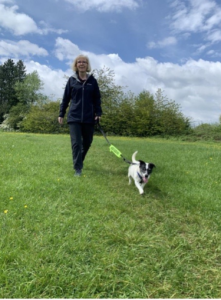
Professor Carol A. Taylor
Professor of Higher Education and Gender in the Department of Education, University of Bath
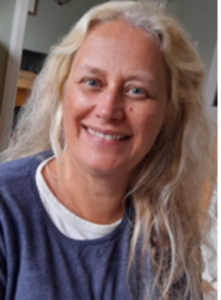
Dr Nikki Fairchild
Associate Professor in Creative Methodologies and Education at the School of Education, Languages and Linguistics, University of Portsmouth.
Dr Nikki Fairchild is an Associate Professor in Creative Methodologies and Education at the School of Education, Languages and Linguistics, University of Portsmouth. Her research is theoretically informed by critical feminist materialist, posthumanist, and agential realist theory. She employs creative methodologies to disturb knowledge production and relationality by entangling materiality, gender, place-spaces, time, temporality and (early) childhoods. She is an Associate Editor for the Journal of Posthumanism and on the Editorial Boards of Contemporary Issues in Early Childhood, Norland Educate Research Journal, and Gender and Education. Her latest book is Fairchild, N., Taylor, C.A., Benozzo, A., Carey, N., Koro, M., & Elmenhorst, C. (2022). Knowledge Production in Material Spaces: Disturbing Conferences and Composing Events. Routledge.
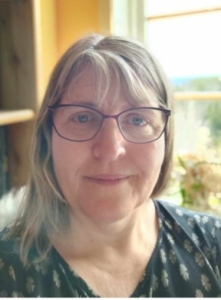
Dr Anna Moxnes
Associate Professor, Department of Early Childhood Teacher Education (ECTE), University of South-Eastern Norway
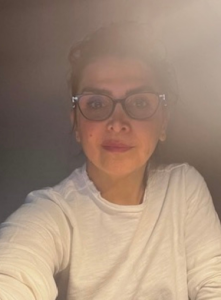
Dr Shiva Zarabadi
Dr Shiva Zarabadi holds a Ph.D. in Education, Gender, Feminist New Materialism and Posthumanism from UCL Institute of Education. Her research interests include feminist new materialism, posthumanism and intra-actions of matter, time, affect, space, humans and more-than-humans. She uses walking and photo-diary methodologies to map relational materialities in ordinary practices. She is the co-editor of the book Towards Posthumanism in Education: Theoretical Entanglements and Pedagogical Mappings (Routledge) and the author of ‘Bodies of Walking: Trans-Materializing the Experiences of Racial Harassment’ in Cultural Studies ↔ Critical Methodologies and ‘Watery assemblages: the affective and material swimming-becomings of a Muslim girl’s queer body with nature’ in Australian Journal of Environmental Education.
Ahmed, S. (2017). Living a Feminist Life. Duke University Press.
Ball. S. J. (1995). Intellectuals or Technicians? The Urgent Role of Theory in Educational Studies. British Journal of Educational Studies, 43(3), 255-271. https://www.jstor.org/stable/3121983
Barad, K. (2007) Meeting the Universe Halfway. Durham, NC: Duke University Press.
Bennett, J. (2010). Vibrant Matter: A Political Ecology of Things. London: Duke University Press.
Braidotti, R. (2019). Posthuman Knowledge. Polity Press.
Butler, J. (1990/2006). Gender Trouble: Feminism and the Subversion of Identity. Routledge.
Cannella, G. S. (1997). Deconstructing Early Childhood Education: Social Justice and Revolution. Peter Lang Publishing.
Coole, D., & Frost, S. (2010). New Materialisms: Ontology, Agency, and Politics. Duke University Press.
Deleuze, G., & Guattari, F. (1994). What is philosophy? Verso Books.
Fairchild, N. (2021) Pedagogies of place-spaces: walking-with the post-professional, PRACTICE [online first]. https://doi.org/10.1080/25783858.2021.1968279
Fairchild, N. (2023). Multiverse, Feminist Materialist Relational Time, and Multiple Future(s): (Re)configuring Possibilities for Qualitative Inquiry. Qualitative Inquiry [online first]. https://doi.org/10.1177/10778004231176753
Fairchild, N., Gravett, K., & Taylor, C. A. (2024). Pedagogies of Mattering in Higher Education: thinking-with posthumanist and feminist materialist theory-praxis. In J. Bustillos Morales & S. Zarabadi (Eds.), Towards Posthumanism in Education: Theoretical Entanglements and Pedagogical Tracings (pp. 123-136). Routledge.
Gravett, K., Taylor, C. A., & Fairchild, N. (2021). Pedagogies of mattering: re-conceptualising relational pedagogies in higher education. Teaching in Higher Education [online first]. https://doi.org/10.1080/13562517.2021.1989580
Haraway, D. J. (2004). The Haraway reader. Routledge.
Haraway, D. J. (2016). Staying with the Trouble: Making Kin in the Chthulucene. Duke University Press.
Hartman, S. (2008). Venus in Two Acts. Small Axe: A Caribbean Journal of Criticism, 12(2), 1–14. https://doi.org/10.1215/-12-2-1
hooks, b. (1994). Teaching To Transgress (1st ed.). Routledge.
Jackson, A. Y., & Mazzei, L. (2012). Thinking with Theory in Qualitative Research: Viewing Data Across Multiple Perspectives. Routledge.
Lather P.A., & Smithies, C. S. (1997). Troubling The Angels: Women Living With HIV/aids. Routledge.
McKittrick, K. (2021). Dear Science and Other Stories. Duke University Press.
Morega, C., & Anzaldúa, G. (2021). This bridge called my back: writings by radical women of color. 40th anniversary edition. SUNY Press.
Nyhus, M. R. (2013). Ventebølger. Venting og de yngste barnas rom for medvirkning i barnehagen. [Waiting-waves. Waiting and the youngest childrens room for participating in Kindergarten.] Fagbokforlaget.
Santos, M. (2021). The nature of space. Duke University Press.
Sharpe, C. (2016) In the Wake: On Blackness and Being. Duke University Press.
Taylor, C. A. (2013). Objects, bodies and space: Gender and embodied practices of mattering in the classroom, Gender and Education, 25(6), 688–703. https://doi.org/10.1080/09540253.2013.834864
Taylor, C. A. (2017). Rethinking the empirical in higher education. International Journal of Research and Method in Education, 40(3), 311–324. https://doi.org/10.1080/1743727X.2016.1256984
Taylor, C. A. (2018). Edu-crafting posthumanist adventures in/for higher education: A speculative musing, Parallax, 24(3), 371-381. https://doi.org/10.1080/13534645.2018.1496585
Taylor, C., Fairchild, N., Elmenhorst, C., Koro-Ljungberg, M., Benozzo, A., & Carey, N. (2019). Improvising Bags Choreographies: Disturbing Normative Ways of Doing Research. Qualitative Inquiry, 25(1), 17-25. https://doi.org/10.1177/1077800418767210
Taylor, C. A. (2021). Knowledge matters: Five propositions concerning the reconceptualisation of knowledge in feminist new materialist, posthumanist and postqualitative approaches. In K. Murris (Ed.) Navigating the Postqualitative, New Materialist and Critical Posthumanist Terrain Across Disciplines: An Introductory Guide. Routledge.
Taylor, C. A., Tobias-Green, K., Sexton, J., & Healey, J. (2022a). Regarding string: A theory-method-praxis of/for co-compos(t)ing feminist hope. Reconceptualizing Educational Research Methodology. 13(2), 47-73. https://doi.org/10.7577/rerm.4910
Taylor, C. A., Hogarth, H., Barratt Hacking, E., & Bastos, E. (2022b). Posthuman Object Pedagogies: Thinking with Things to Think with Theory for Innovative Educational Research, Cultural and Pedagogical Inquiry. 14(1), 206–221. https://journals.library.ualberta.ca/cpi/index.php/cpi/article/view/29662/21668
Taylor, C. A., Albin-Clarke, J., Broadhurst Healey, K., Hogarth, H., Lewis, Z., Pihkala, S., Smith, S., Cranham, J., Latto, L. (2023). What do doors do? Door storyings, matterings, adventurings and commonings. Qualitative Inquiry[online first]. https://doi.org/10.1177/10778004231196184
Tuhiwai Smith, L. (2012). Decolonizing Methodologies: Research and Indigenous Peoples (2nd Ed). Zed Books Ltd.
Weheliye, A. G. (2014). Habeas Viscus: Racializing Assemblages, Biopolitics, and Black Feminist Theories of the Human. Duke University Press.
Zarabadi, S. (2022). Watery assemblages: The affective and material swimming-becomings of a Muslim girl’s queer body with nature. Australian Journal of Environmental Education 1-11. https://doi.org/10.1017/aee.2022.39
Zarabadi, S. (Forthcoming 2024). ‘Hair-ing and haring: Post (auto) theoretical more-than-human entanglement with hair/her/stories of Muslim schoolgirls’, Gender and Education SI: Gender, Feminisms and the ‘Posts’: Contemporary Contestations, New Educational Imaginaries & Hope-full Renewals.

